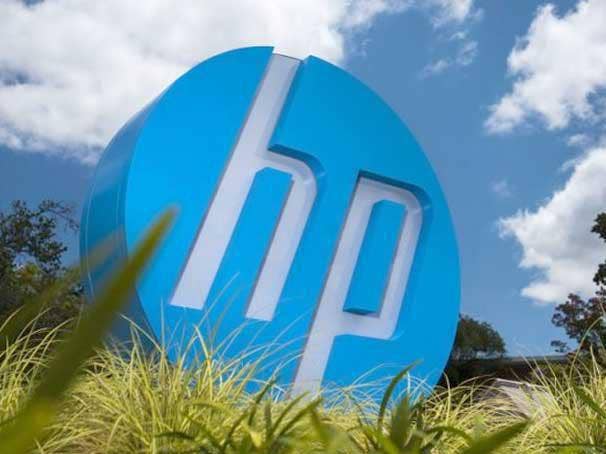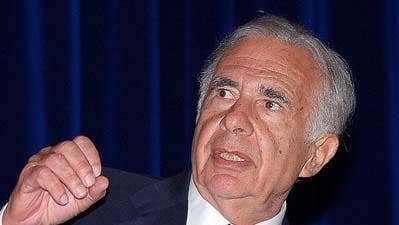5 Things To Know About HP's Shareholder Rights Plan
HP has adopted a plan that could make a hostile takeover by Xerox more difficult while giving its shareholders greater protections.

HP vs. Xerox
With its shareholder rights plan to battle Xerox's acquisition bid, HP Inc. is taking a page from Netflix, circa 2012. That year, Netflix adopted a stockholder rights plan as a response to increased share buys from activist investor Carl Icahn--and Netflix ultimately was never bought out. Now, with HP facing a hostile takeover bid from Icahn-backed Xerox, HP has adopted a shareholder rights plan that reads very similarly to Netflix's 2012 plan.
The move by HP comes after Xerox said it will ask all HP shareholders to sell their shares through a tender offer, starting "on or around" March 2. To help entice shareholders, Xerox also said it will raise its takeover offer to $24 a share, from $22 a share previously. The new offer amounts to a $34.9 billion acquisition bid for HP, up from $32 billion originally.
HP's board of directors has repeatedly rejected the takeover deal since it was first proposed by Xerox in November. "As we have previously said, we are very concerned about Xerox’s aggressive and rushed tactics, and any process that is not based on full information is a threat to our shareholders," said the chair of the board, Chip Bergh, in a news release Thursday.
What follows are five key things to know about HP's shareholder rights plan.

What The Plan Accomplishes
The shareholder rights plan includes measures that are triggered if an outside entity acquires 20 percent or more of HP common shares. In a filing with the U.S. Securities and Exchange Commission, HP said the plan has the effect of penalizing such entities--in this case, Xerox or Icahn. "In general terms, the Rights Agreement works by imposing a significant penalty upon any person or group that acquires 20% or more of the outstanding shares of HP Common Stock without the approval of the Board," HP said in the filing.
Icahn (above) has disclosed owning a 4.24 percent stake in HP. He also owns 10.6 percent of Xerox shares, and Xerox’s leadership includes a number of Icahn loyalists, among them CEO John Visentin.

Rights Distribution
For the initial step in the process, HP said that on March 2 it will provide existing shareholders with one preferred share purchase right for each share of common stock. Initially, the rights will trade in tandem with common stock. In the event that an outside entity acquires 20 percent of HP shares, however, the situation changes. Ten days after this threshold being crossed, the rights would separate from common shares and entitle shareholders--excluding the hostile acquirer--to buy additional HP shares at a steep discount.

"Flip In"
In the scenario of a hostile acquirer gaining a 20-percent or more stake, each right would allow a holder to buy HP common shares for half their market price. Specifically, a right would let its holder buy HP shares with a market value totaling $200 for a price of $100, according to HP. Because Xerox (or Icahn) wouldn't be given the option to buy additional shares in this way, the aim of the tactic would be to increase the number of shares that a hostile acquirer would need to obtain to succeed--making the takeover more expensive in the process. This measure, known as a "flip in," was a core provision of Netflix's stockholder rights plan aimed at fending off Icahn.

"Flip Over"
Likewise, another tactic used by Netflix--and now also by HP--is what's known as a "flip over" provision. If Xerox was still ultimately able to accomplish its takeover, the "flip over" provision would aim to create more headaches for the company. If the acquisition was successful, each right would enable a holder to buy $200 worth of the acquirer's stock for $100. That would potentially result in dilution for Xerox and a greater stake in the combined company for HP shareholders.

Expiration Date
HP said the shareholder rights plan will expire in one year -- on Feb. 20, 2021. The company also emphasized that the plan isn't a silver bullet for stopping a hostile takeover. The rights plan "will not prevent a combination of HP with another business, but should encourage Xerox (or anyone else seeking to acquire the Company) to negotiate with the Board prior to attempting to impose some combination that is not in the best interests of the HP shareholders," HP said in the news release.
Additionally, the plan "should not interfere with any merger or other business combination approved by the Board," HP said in its SEC filing.
Xerox did not immediately respond for a request for comment Thursday.